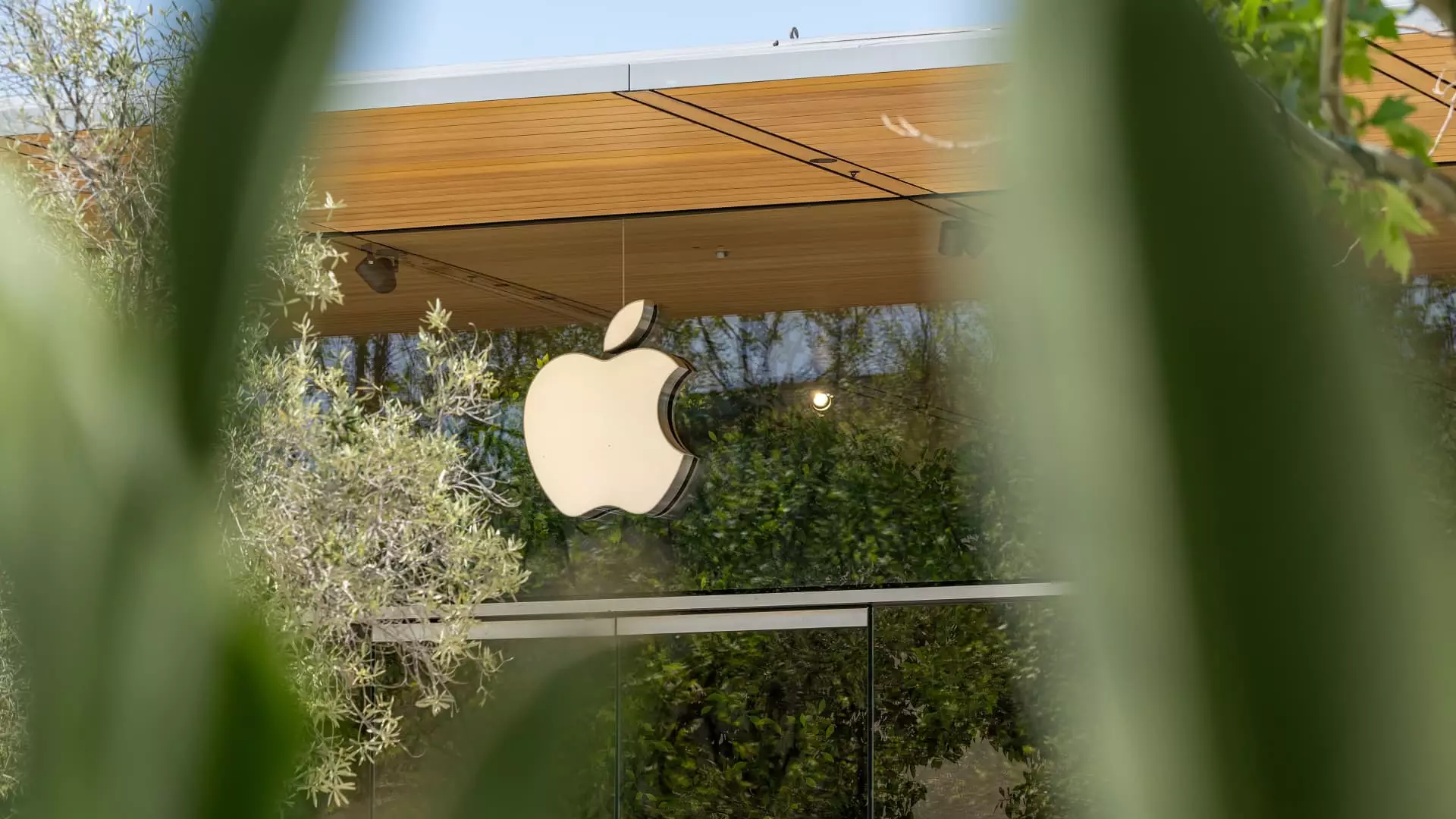Apple, the colossal titan of technology, is embroiled in a high-stakes legal showdown with Epic Games that is sending shockwaves throughout the tech world. The latest twist? Apple is requesting a hold on a court ruling that could drastically reshape its business model, specifically its infamous App Store commission system. Just last month, U.S. District Judge Yvonne Gonzalez Rogers dished out an edict highlighting Apple’s failure to adhere to her previous orders from the Epic trial. This ruling marks a pivotal moment in the long saga between app developers seeking fairer practices and a behemoth company staunchly defending its revenue streams.
This entire ordeal unfolds not only in the courtroom but also within the heart of the consumer experience. As Apple faces a potential overhaul of its commission structure, developers like Amazon and Spotify are swiftly adapting to capitalize on this newfound freedom. This tussle isn’t merely a corporate dispute; it’s a fight for the foundational rules of digital commerce and consumer choice, and ramifications could extend far beyond the confines of Silicon Valley.
Apple’s Alarm Over Revenue Threats
In its emergency motion to pause the recent ruling, Apple is not just expressing concern; they’re practically sounding the alarm. The company argues that compliance with the court’s decision would result in dire financial consequences, potentially siphoning off “hundreds of millions to billions” annually. Clearly, the stakes couldn’t be higher. Apple’s App Store has long been seen as a cash cow, raking in massive profits through its commission model. With Judge Rogers ordering them to halt such commissions on external payments through app links, one can’t help but wonder if this is the beginning of a disruptive era for app-driven businesses.
The root of Apple’s fear lies in its argument that “non-party developers” are exploiting this ruling, thus diluting Apple’s market power and reducing consumer choice. Is Apple genuinely worried about consumers’ choices, or is this a clever marketing tactic to maintain its dominant position? Skeptics might argue that this is simply a matter of a corporate giant reluctant to relinquish its earnings, masquerading as a champion for consumer rights.
The Complex Dynamics of the Developer Ecosystem
What makes this fight fascinating is the broader implications it has for the app developer ecosystem. Tim Sweeney, CEO of Epic Games, claims that the recent ruling finally compels Apple to “compete.” This notion of competition is vital in a marketplace that has often felt stifled under Apple’s draconian policies. With developers like Amazon updating their apps to direct customers to their own payment systems, the landscape is evolving at lightning speed. Epic also plans to roll out new software specifically designed to facilitate these external payment options for developers—a sign of the kind of momentum that could lead to a seismic shift in how apps generate revenue.
However, it’s important to consider the duality of this transformation. While it encourages competition among app providers, it also raises potential concerns around consumer security. Will users be unwittingly directed to insecure payment platforms, putting their personal information at risk? The dialogue surrounding app economics must navigate these complex waters while still prioritizing consumer protection.
The Underlying Tensions in Corporate Governance
Adding another layer to this legal drama is the troubling revelation that Apple’s leadership allegedly misled the court regarding external payment strategies. Judge Rogers went as far as suggesting that Apple’s misrepresentation bordered on criminal conduct. This accusatory atmosphere poses fundamental questions about corporate governance and accountability in tech companies. If top executives are permitted to circumvent transparency, what’s to stop them from engaging in other questionable practices?
As Apple strives to appeal the contempt ruling while asserting its adherence to previous orders, it is evident that shareholders and consumers alike are watching closely. The company’s narrative continues to oscillate between wanting to foster innovation and seeking to uphold an iron grip over its earnings. Such cognitive dissonance raises eyebrows and begs for a reassessment of how leaders in the tech sphere manage power and accountability.
In essence, the stakes in this epic legal battle aren’t solely financial or operational; they encapsulate the evolving ethics of business in the digital age. One thing is for certain, whether Apple emerges victorious or not, the outcomes from this litigation will reverberate throughout the industry for years to come.

